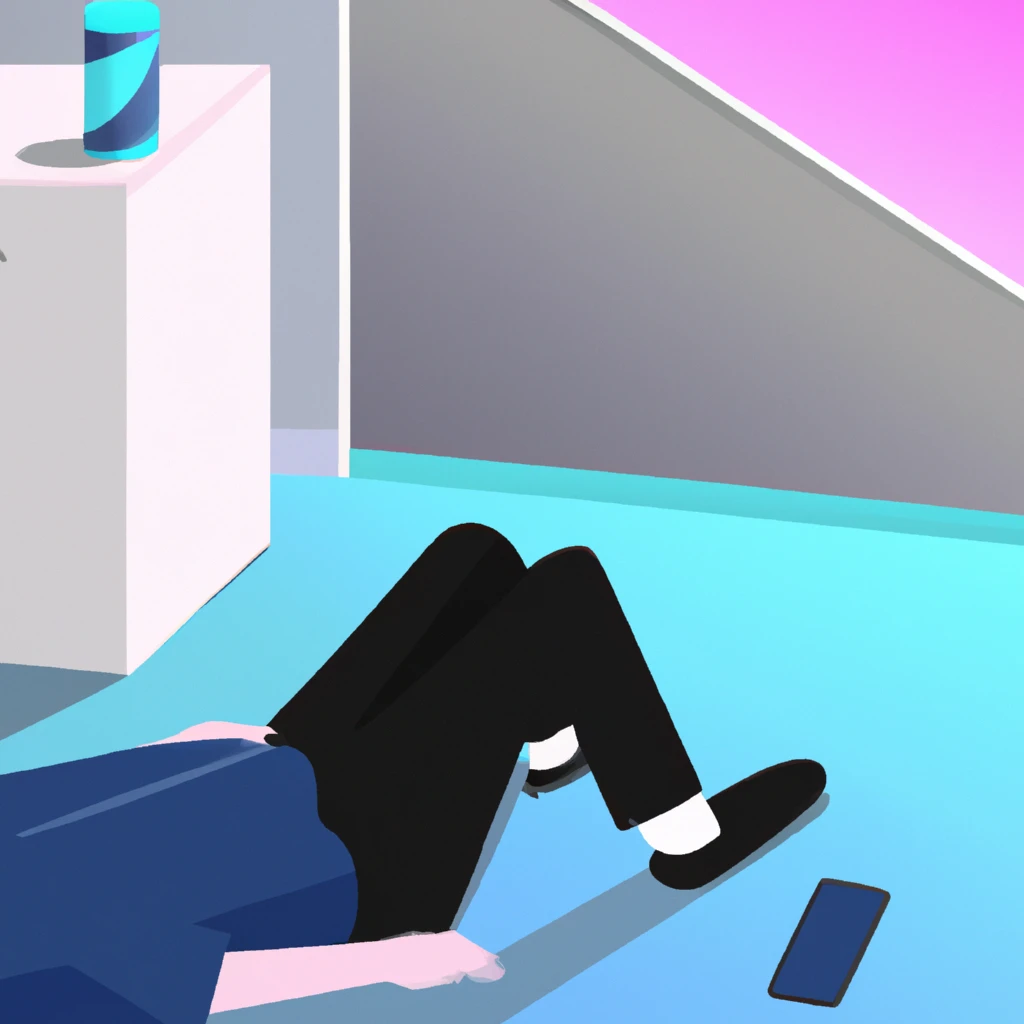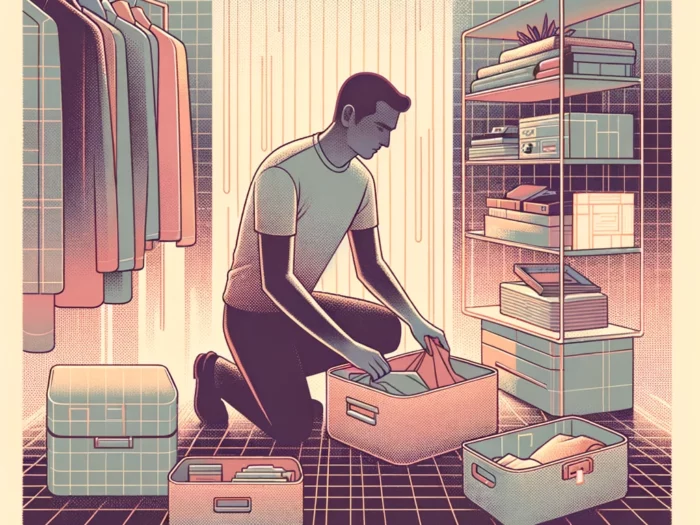- Introduction: My Personal Journey with Cell Phone Addiction
- Understanding the Impact of Excessive Cell Phone Use on Mental Health
- Identifying the Signs of Cell Phone Addiction: Am I Addicted?
- The Science Behind Cell Phone Addiction: How It Affects the Brain
- Creating a Digital Detox Plan: Strategies to Break Free from Your Cell Phone
- Finding Alternative Activities: Rediscovering Offline Hobbies and Interests
Introduction: My Personal Journey with Cell Phone Addiction
Allow me to bring you in a little closer, into the warm circle of my personal narrative. There was a time, not so long ago, when my cell phone felt like an extension of my own hand. The comforting weight of it, the smooth coolness against my skin, it felt so normal that I could hardly remember a life without it. The constant scrolling through feeds and constant notifications was as ingrained in my activities as morning coffee, as if my life revolved around an electronic device that easily fit into the pocket.
But, like all things that start off harmless and veer into the excessive, my cell phone habit spiraled into something that consumed, rather than supplemented my life. I found myself reaching for it the first thing in the morning, and the last thing before I went to bed. The poking of a screen, the addictive nature of constantly refreshing feeds for another hit of dopamine from a new like or comment, it was my comfort, but also, my undoing.
The realization of this dependency did not come in a bright, lightning-bolt moment. Instead, it was a gentle nudge from a friend, a subtle suggestion that perhaps, I was giving my phone more attention than I did to our precious live conversations. A quick self-reflection revealed the glaring truth – I was indeed, too invested in my cell phone, overlooking real-life moments for a filtered version in the digital realm.
So yes, dear reader, I was once like you, perhaps still struggling to untether myself completely, but with baby steps and commitment, I have made significant strides towards digital wellness and here, I am ready to share my journey with you, a roadmap perhaps, to help you navigate these often rough, digital waters.
By re-calibrating my relationship with my mobile and setting boundaries, I acquired a multitude of gains; the gift of time, deeper human connections, and a refreshing tranquility that comes only with being fully present in the moment. I hope my experiences will be helpful for those venturing their own path towards mitigating cell phone reliance.
I learned the true essence of this quote, “Technology should improve your life, not become your life.” So, shall we begin our shared journey towards a balanced digital lifestyle? Let’s dive in.
Understanding the Impact of Excessive Cell Phone Use on Mental Health
Like everyone else, I was unaware how the excessive use of my favorite gadget was taking a toll on my mental health. The constant pinging and vibrating of notifications can make you feel like you’re always ‘on edge.’ It’s like you’re waiting for the next thing to happen, and that’s an exhausting way to live. But it was not until I delved deeper into the harmful impact of prolonged phone use, that I realized how badly it affects our minds. The average person spends about 3 hours and 15 minutes on their phone each day. Thats’s a hell of a lot of time.
Obsession: An Invisible Prison
Our smartphones, with their endless array of games, social media, and other apps can feel like technology’s gift to loneliness and boredom. But that’s where the trap lies. As we while away our hours scrolling and tapping, what initially was a distraction quickly becomes an obsession. In worst case scenarios, it breeds a form of addiction where life without a cell phone seems unthinkable.
Impact on Sleep
Remember those night times when you’d just hop onto bed, all set to nod off and then you’d thoughtlessly grab your phone for a ‘last quick scroll’? Yep, I’ve been there, done that. It transpires, the light emitted by smartphones can disrupt your brain’s ability to wind down for sleep. So, instead of drifting off into dreamland, you’re left wide awake, scrolling till your eyes water.
According to a study published in Current Biology, using a cell phone or laptop before bed can disrupt the body’s production of melatonin and negatively affect sleep quality. So, in a nutshell, trading those bedtime stories with smartphone time has serious consequences.
Mental Unrest and Emotional Well-being
Do you remember the last time you felt peace after an hour-long social media scroll? That’s a toughie, right? Well, that’s because social media platforms and other interactive applications incite feelings of comparison, jealousy, and other negative emotions. They feed us this illusion of ‘perfect lives’ everyone else is living, making us feel less than enough. Continuous exposure to such platforms can yield anxiety, depression, and overall dissatisfaction with one’s own life.
The Royal Society for Public Health in UK conducted a survey finding that Instagram, Facebook, Snapchat, and Twitter all harm young people’s mental health, with Instagram being the worst offender.
Isn’t it ironical how a device that was created to keep us connected and informed can make us feel isolated and unfulfilled?
Fostering Dependency
I can vouch that without my phone, I felt clueless, like I was missing an important part of me, almost like leaving home without wearing shoes! This dependency on our smartphones not only handcuffs us to our devices but also undermines our self-confidence, and blurs the line between our real and virtual lives. So, the next time you feel your heart race at the thought of a dead battery or misplacing your phone, remember, that’s another unhealthy sign of smartphone overuse.
It’s alarming how swiftly such a useful tool can turn into a source of stress and anxiety. Having walked through this path and successfully overcoming it, I assure you that breaking a cell phone habit, while challenging, is not impossible.
Identifying the Signs of Cell Phone Addiction: Am I Addicted?
Picture this scenario: It’s 3AM, your eyes are heavy and your body is begging for a good night’s sleep, but you know the siren call of your cell phone notifications is too strong to resist. You tell yourself, “I’ll just check one more time” and suddenly you’re spiraling into the vortex of endless newsfeeds and infinite scrolling. “Does this sound a bit too familiar?” I hear you ask. If it does, like it did to me not too long ago, then it’s high time we seriously consider the factors that indicate we may be spending too much time on our devices.
Checking Your Phone First Thing in the Morning and Last Thing at Night
Come on, let’s be honest. How many of us do this? The moment we rise and shine, our hands involuntarily reach out for the phone, checking and scrolling through our notifications. And before we hit the hay, we dedicate a good chunk of time to our devices, promising it’s the last. If this sounds like your daily routine, then it’s a clear indication of a deeper dependency on your cell phone.
Feeling Anxious Without Your Phone
Do you recall a time when you involuntarily left your cell phone at home and were engulfed by an intense wave of anxiety, feeling as though you had lost an appendage? It’s what we fondly (or not-so-fondly) call Nomophobia – the fear of being out of mobile phone contact. This severe anxiety, coupled with the compulsive desire to check your phone tirelessly reaffirms the fact that you may be a tad too attached to your palm-sized electronic buddy.
Problems in Personal Relationships Due to Phone Usage
Our precious handsets with their gazillion apps and endless notifications can act as attention parasites, stealing us away from our loved ones, causing distress and disharmony. If you identify conflicts in your interpersonal relationships due to your cell phone use, it’s a discerning sign that your cell phone has climbed up to an unwarranted priority in your life.
Ignoring Responsibilities and Daily Chores
If your household duties, office work, or academic performance has started slipping because you’re perennially preoccupied with your phone, the alarm bells should start to toll. This might be the right time to reassess the importance you accord to your cell phone as compared to your responsibilities.
Sacrificing Sleep Over Screen Time
Colloquially, we may joke about how “Netflix and Chill” has graduated to “Netflix and Kill (Sleep)”, but the impact of this habit is far from funny. The shift from getting a full-night’s sleep to catching only a few hours of scattered snooze leaves you feeling depleted, and yet the habit persists. If you’re trading your sleep for screen time, you’re not only running the risk of developing serious health issues but also furthering your addiction to your device.
Lastly, let me say this – it’s okay, more than okay, to admit to this addiction. It’s the first step towards recovery. As someone who’s been through this journey and emerged at the other end, trust in yourself and your ability to overcome your cell phone habit. You’re much more than an average scrolling machine!
The Science Behind Cell Phone Addiction: How It Affects the Brain
As an individual who spent too much time staring at the small screen myself, I speak with authority and firsthand experience on how cell phone addiction subtly alters our brain chemistry and functioning. It’s like a secret agent sneaking into your brain unnoticed and setting up camp, altering the dynamics without your permission.
Neuroplasticity: Our brain’s formidable ability to adapt
Our brains, bless them, are amazingly adaptable due to a phenomenon called neuroplasticity. This is our brain’s ability to form and reorganize synaptic connections, especially in response to learning or experience or following injury (source). Each time you check your phone, a small dose of dopamine – the “feel-good chemical” – is released, and your brain learns to want more of it. More check-ins, more dopamine – you get the picture. It’s kind of like teaching your brain to dance the cha-cha when it was once content with a simple two-step.
The Role of Dopamine: A dance with the ‘Feel-Good’ neurotransmitter
Our feel good neurotransmitter, dopamine, plays a starring role in the cell phone addiction storyline. According to research, dopamine is released every time your phone pings with a new alert or message, making your chat groups and social media feeds dopamine triggers. This forms a Pavlovian association between your cell phone and the dopamine hit. Check your phone – feel good. Rinse and repeat. Before you know it, you’re on the dance floor with an irresistible partner!
The Development of Phantom Vibrations: A Tricky Deception
Have you ever felt your phone vibrate only to check and find no notification? This, my friends, is called a phantom vibration and it’s a sign your brain is now wired to anticipate those dopamine hits (source). It if your brain playing is tricks on you, creating an illusion of a buzzing phone to satiate its craving for a dopamine release. Talk about a sneaky move, huh?
Armed with this knowledge, understanding the science behind your cell phone addiction serves as a powerful tool. Remember, your brain is capable of rewiring. As it adapted to become dependent on the dopamine hits from your cell phone, with patience, dedication and determination, it can learn to resist them. Below, we’ll walk through techniques to help restore balance to your neurochemistry and break free from the chains of cell phone addiction.Setting Goals: Assessing Your Current Cell Phone Usage and Determining Your Desired Digital Lifestyle
Creating a Digital Detox Plan: Strategies to Break Free from Your Cell Phone
One brutal winter, doing my best corn chip imitation under dull fluorescent lights, I knew I needed to change my habit of incessantly checking my cell phone. So, I began my journey to deliberate digital detoxification.
Step 1: Acknowledge and Analyze
Breaking free from a cell phone starts by acknowledging the habit and assessing the underlying causes. For me, it was a sense of being “in the loop”, coupled with a fear of missing out. What’s yours?
Step 2: Set the Boundaries
aren’t arbitrary, like a child resisting bedtime. They’re boundaries set to curate a healthier lifestyle and a mindset more present in the physical world. I started by designating “no-phone hours” in my day, initially at dinner and gradually extending to whole evenings.
Step 3: Mindful Usage
The next step is being mindful about when and why you’re using your phone. Casual browsing often snowballs into hours of screen time. I made a point to only use my phone with a defined goal in mind, cutting down on aimless scrolling.
Step 4: Turn Off Pointless Notifications
Notifications, like sirens of the digital age, constantly vie for our attention. Switching off irrelevant ones was liberating, reducing the frequency of my screen dances.
Step 5: Employing Apps that nudge
I had the help of apps like Screen Time and Forest, which provide insights on your cell phone usage and encourage attention regulation, respectively. The sapling that grew into a virtual tree, if I managed not to use my phone, was a delightful sight!
Step 6: Put the Phone Out of Sight
Yes, sometimes it’s as simple as that! Just by placing my phone in a different room or inside a drawer when working or engaging in a hobby, I automatically reduced its usage. You would be amazed at the power of ‘out sight of, out of mind’!
Step 7: Take up a ‘Digital Detox Challenge’
Who doesn’t like a good challenge, right? Weekly or monthly digital detox challenges can be invigorating. Doing it with a buddy adds an element of accountability that can surely support your efforts.
Inspired by several such detox plans, I designed my own journey, tweaking it as I progressed. Remember, it’s all about creating an environment free from digital distractions, one small step at a time.
The road to breaking a cell phone habit isn’t a highway, but a meandering countryside road, with its fair share of bumps and turns. Embrace it rather than resist it, and you’ll find a new sense of tranquillity nestled within your everyday life. As I ventured on this journey, I started noticing the small yet magical details of life that were veiled by the blue glow of my phone screen.
Finding Alternative Activities: Rediscovering Offline Hobbies and Interests
Just as Dorothy discovered in the timeless classic, The Wizard of Oz, we often have what we need all along—we simply forgot how to use it. For those desperately clinging to smartphones, it’s no different. Once upon a time, we enjoyed fulfilled lives offline, full of hobbies and activities that didn’t demand the glaring glow of a smartphone screen. So, let’s uncork that bottled-up creativity, dust off those old love affairs with non-digital curiosities, and find our path back to the Emerald City of enriched human connection — sans phone.
Firstly, the key to truly empowering yourself to put down the phone is to rekindle or discover passions that engage and absorb you so profoundly that you naturally forget about your digital attachment. You could consider this the passion-driven approach to regaining control of your time. But where does one even start? Let’s explore:
Never Underestimate the Power of a Good Book
Remember those rectangular objects made of paper that sat idly on your shelves, gathering dust? Yes, I’m talking about books. Reading activates parts of our brains inaccessible with digital diversions, flowing rivers of creativity and triggering mental imagery that no technology can replicate. And worry not about variety. Whether you’re into murder mysteries, self-help, non-fiction, or classic literature, there’s a book for every taste. Remember, a turned page is a lot healthier than a swiped screen.
Dabble in Art
Why not channel your restlessness into something beautiful like art? You don’t have to be the next Van Gogh to pick up a paintbrush. Throw some color onto canvas, doodle in a sketchbook, or mold a chunk of clay. Artistic pursuits not only improve concentration but also ignite our intrinsic creative spark, offering a therapeutic and mindful mental retreat from our otherwise fast-paced lives.
Outdoor Activities
In my own bid to break the chains of my cellular captor, I found solace in the great outdoors. The fresh air, the rustling leaves, the chirping birds — they simply demanded my undivided attention. Activities like hiking, camping, or simply taking a walk in the nearest park can not only help you disconnect from the digital world but also reconnect with Mother Nature herself.
Master a Musical Instrument
Or, you might find yourself entranced by the melodic lure of a musical instrument. Learn to play that old guitar sitting in the corner of your room, tickle the ivories on an abandoned keyboard, or drum your heart away. Nothing beats the dwarft of a favorite melody and the satisfaction of creating that tune with your own two hands.
All these activities serve as a compass, guiding you on a path of rediscovery, leading you back to your roots, rightfully pushing your phone off its undeserved pedestal. But remember, breaking this addictive habit is akin to scaling a mountain — it requires patience, perseverance, and a good dose of humor as you trip and tumble your way to the top.
The journey isn’t easy, but trust me, the view from the top is worth every stumble. Moreover, by sharing my own experiences and insights, I hope to provide you a trusty map for your own journey of digital detoxification.









